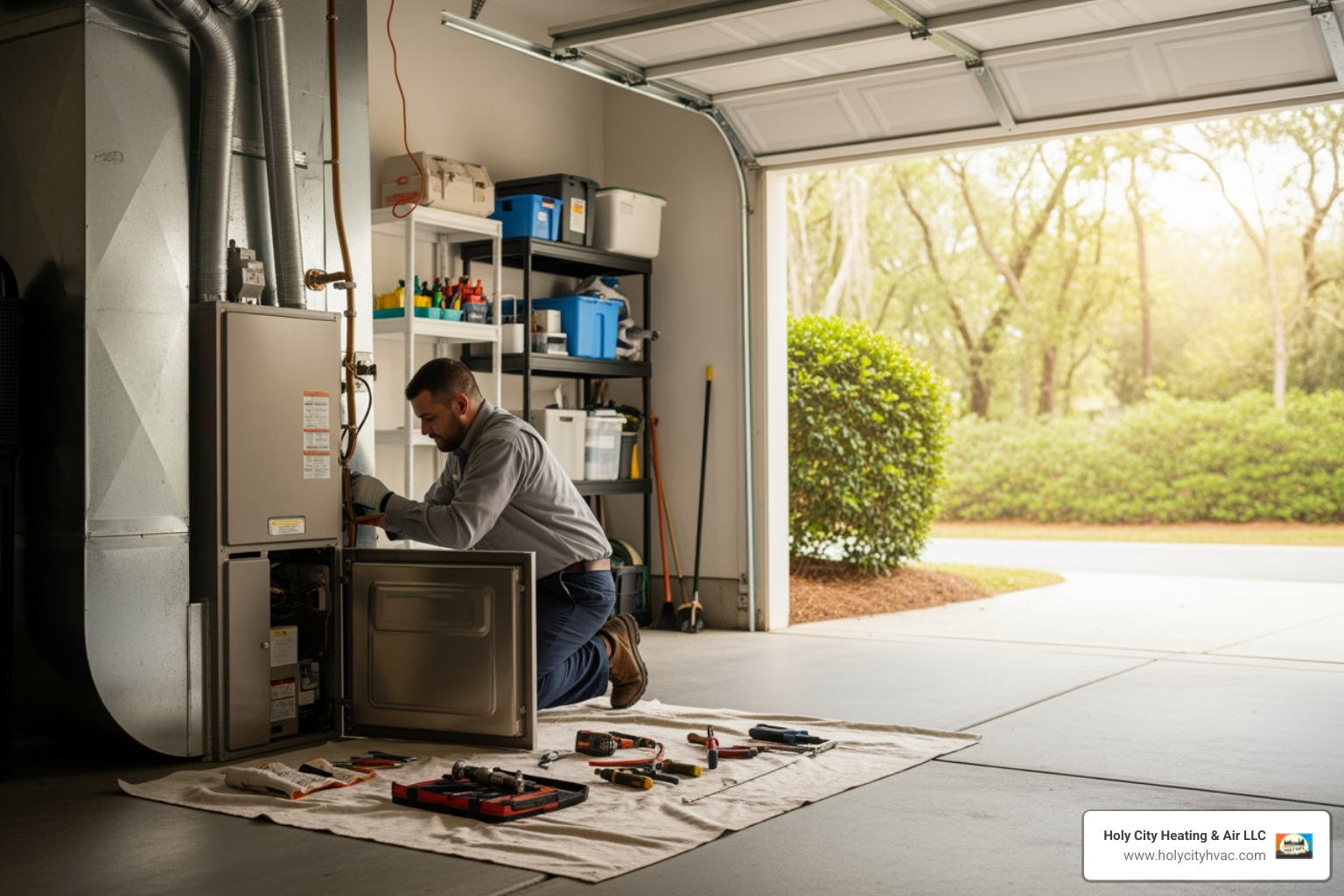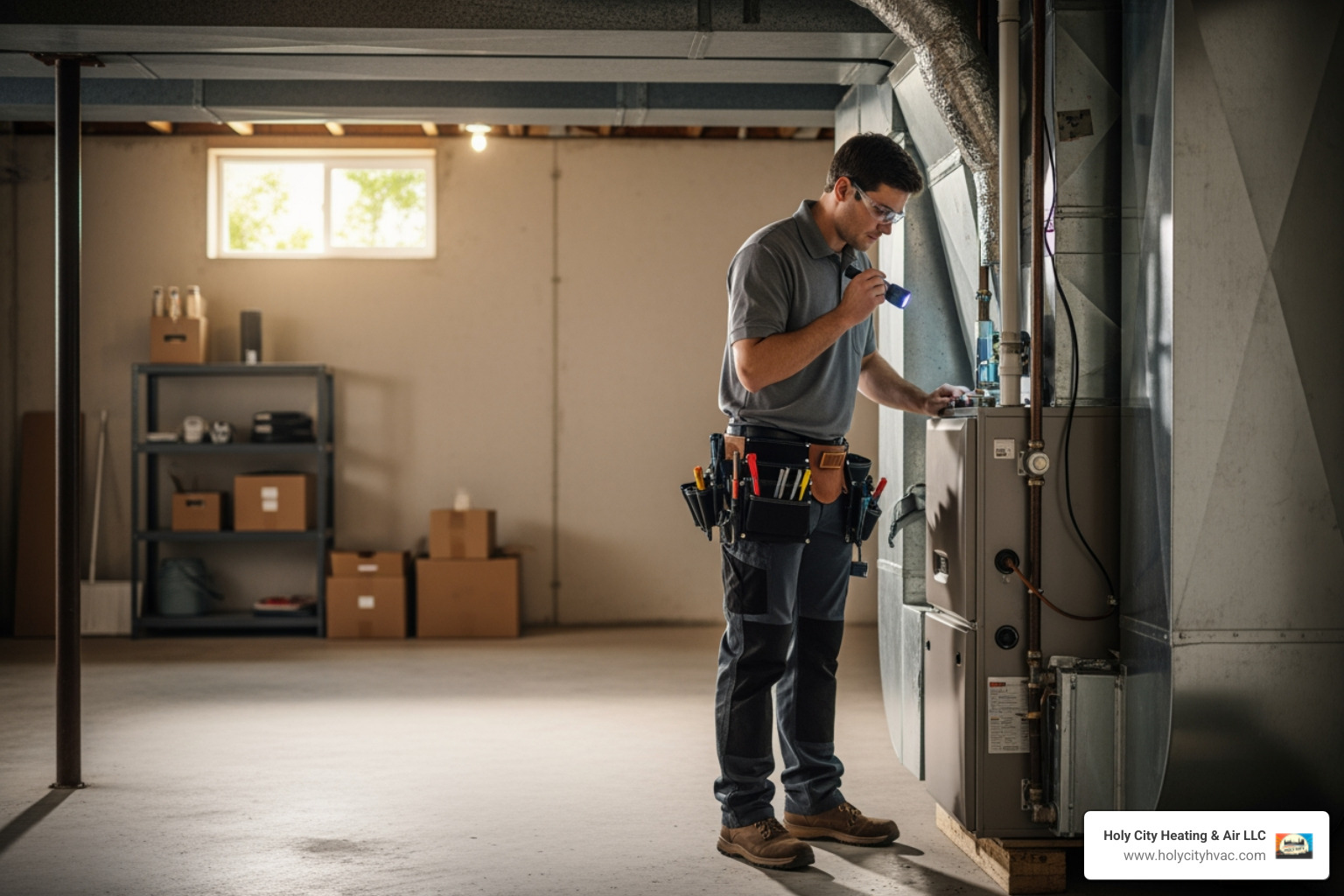
AC Refrigerant Leaks: Early Warning Signs for James Island Residents
Homeowners in James Island know that summer heat doesn’t play around. As temperatures rise, it's essential for your home’s AC system to work the way it should. If cool air suddenly doesn’t feel so cool, or your energy bill jumps up for no clear reason, there might be something going on behind the scenes like a refrigerant leak. These leaks are more common than most people think and can quietly break down the efficiency of an AC unit over time if left unchecked.
Identifying the signs early can help avoid a major breakdown right in the middle of summer. No one wants to be left in hot, muggy air during peak temperatures. Exploring what causes refrigerant leaks and how to spot them early can make a big difference. When detected in time, small problems can be fixed before they become expensive repairs or start affecting your comfort at home.
Common Causes of AC Refrigerant Leaks
Refrigerant leaks can occur for a number of reasons, and almost all of them happen without warning. Many homes across James Island rely on older AC systems that have been running for years. As these systems age, internal parts break down from everyday use, making them more prone to hidden leaks.
Here are a few of the most commonly seen causes of refrigerant leaks in residential AC systems:
- Normal wear and tear: Over time, the metal parts inside the AC unit can get worn down. Vibrations and shifting during operation may create small cracks or weak points where refrigerant slowly escapes.
- Corrosion on copper coils: AC systems use copper coils that carry refrigerant. With constant exposure to moisture and chemicals in the air, these coils may corrode, creating pinholes that leak refrigerant.
- Factory defects or damaged connections: Sometimes refrigerant lines or valves may not be sealed correctly during installation. This can lead to slow leaks that aren't obvious at first.
- Poor maintenance: If your system hasn’t been serviced in a while, small issues may go unnoticed. Worn-out joints, loose fittings, or dirt buildup can all contribute to potential leaks.
- Previous improper repairs: A quick fix performed incorrectly in the past can weaken your system. For example, overtightening a joint might solve a short-term problem but crack a component over time.
Leaks like these are not always easy to spot early. Many happen within concealed components of the system, like inside insulation or behind walls. That’s why checking for warning signs becomes so important.
Early Warning Signs That Point to a Leak
When a leak begins, it may start small but gradually affect overall comfort and system performance. You don’t need to understand every internal component of your AC system, but you do need to know how it behaves when something isn’t right. If you start to feel warmer air or notice something off with your system, trust your instincts and take a closer look.
Here are a few warning signs that often point to a refrigerant leak:
1. Less cool air – Your system still runs, but the room doesn’t reach the temperature you set. The airflow might feel weaker or not cool enough.
2. Hissing or bubbling sounds – These sounds usually come from inside the unit or near the refrigerant lines. A hissing sound typically means gas is escaping under pressure, while bubbling may mean there’s liquid refrigerant leaking.
3. Frozen evaporator coils – Ice forming on the coils means your system is working too hard to cool the space. Low refrigerant prevents efficient heat exchange, leading to frozen parts.
4. Short cycling – If your AC starts and stops frequently without reaching the right temperature, it could be compensating for low refrigerant.
5. Higher energy bills – A system that has to run longer and harder due to low refrigerant naturally uses more power.
For example, a James Island homeowner recently noticed a puddle of water near the indoor unit and felt that cooling had dropped off. It turned out ice had built up on the evaporator coil due to a slow refrigerant leak, creating condensation as it thawed. Addressing the leak early prevented compressor damage and kept the home comfortable.
Even if you’re not entirely sure what the cause is, these signs are strong indicators that the system needs attention. Getting ahead of a refrigerant problem can keep you from dealing with larger repairs down the line. It also keeps your indoor temperature where it belongs—comfortable and steady during the season when you rely on AC the most.
Health Risks Associated With Refrigerant Leaks
While it might seem like a refrigerant leak is just an HVAC issue, the risk can extend beyond your comfort. When refrigerant escapes into your home, it can bring on indoor air quality problems that pose health concerns, especially in homes where people already deal with allergies, asthma, or other respiratory conditions. Refrigerant is a chemical, and although it's kept sealed inside the AC system under pressure, a leak allows it to enter your living space where it shouldn’t be.
Exposure to refrigerant can cause symptoms such as:
- Headaches or lightheadedness when in the same room as the AC
- Coughing, sore throat, or shortness of breath
- Skin irritation if there’s direct contact
- Watery eyes or sinus irritation
These symptoms are not always linked immediately to a refrigerant problem because they can be mild at first. What often makes people finally take action is when the cooling system doesn’t work well at the same time these issues pop up. Younger children, elderly residents, or anyone with respiratory issues may be affected faster, especially in a home with poor air circulation.
If there's ever a suspicion of a refrigerant leak, it's important to act right away. An early fix can stop those symptoms from getting worse and get your home back to a safe and comfortable environment. Leaving the problem unchecked lets it continue to leak while your air continues to cycle, which can spread refrigerant gas throughout closed-off areas.
What To Do If You Suspect a Leak
A few signs might point to a refrigerant leak, but once you think it’s a real issue, taking the next step is critical. Here's what homeowners in James Island can do if they believe their AC system might be leaking refrigerant:
1. Turn off the AC unit – This helps prevent further refrigerant loss and stops the system from working harder than necessary, which could cause more damage.
2. Don’t touch frozen or hissing parts – Avoid handling any part of your AC that looks icy, is leaking liquid, or makes a hissing noise. These parts could release gas or become unsafe to touch.
3. Limit time in the affected area – Try to minimize time spent in rooms closest to the AC unit, especially if you or anyone in the household has breathing sensitivities.
4. Call our professionals for help – A refrigerant leak isn’t something that can be fixed with a quick patch. Detection tools, proper sealing, and recharge procedures are best handled by our trained technicians.
5. Document what you noticed – Make note of when you noticed symptoms, sounds, or changes in temperature. This information helps our professionals diagnose the issue faster once onsite.
Trying to fix or inspect the system on your own can lead to more damage or even personal injury. Refrigerant is highly pressurized and must be handled using proper equipment. Our professionals use specialized detection methods and follow safety regulations to perform repairs safely and thoroughly.
Preventing Future AC Refrigerant Leaks in James Island
Once a leak is repaired, preventing another one becomes the next big priority. Refrigerant problems can happen more than once if the same conditions are present. The key is staying ahead of potential wear and tear before it grows into a serious problem.
Here’s how to reduce the risk of future leaks:
- Schedule regular AC maintenance – Have your AC system inspected before every cooling season. This helps catch corroded coils, worn-out connections, and early signs of trouble.
- Change your air filter every 1 to 3 months – Dirty filters reduce airflow and cause strain on the system, which can lead to freezing and pipe stress that cracks over time.
- Don’t ignore small repairs – Slight drops in cooling performance or strange noises shouldn’t be brushed off. These are often early signals that something inside your system is off balance.
- Watch out for humidity changes inside the home – Excess moisture may corrode coils sooner. Make sure ventilation is working well and your AC unit drains properly.
- Keep the area around the outdoor unit clear – Vegetation, dirt, or objects too close to the condenser unit can restrict performance and add wear during peak usage.
Even well-installed AC systems can run into problems just from age or misuse. But systems that get annual professional maintenance and timely inspections tend to last longer and run at full efficiency throughout summer in James Island.
Keep Your AC Running Smoothly for James Island’s Hot Summers
Ignoring the signs of an AC refrigerant leak can make a home uncomfortable and even unsafe. During the hottest time of year, any drop in AC performance doesn't go unnoticed for long. The longer it's ignored, the worse it gets. Small warning signs like hissing sounds or weak airflow might seem minor, but they often point to larger problems hiding inside your unit.
Taking early action is the best way to prevent more serious damage. Whether it's a coil replacement or a refrigerant recharge, our technicians provide the expertise needed to repair the problem correctly the first time. With regular maintenance and a quick response to possible leaks, your AC unit will stay efficient, reliable, and ready to handle the heat season after season.
James Island residents rely heavily on their cooling systems once summer sets in. Making sure your AC is in top shape before heavy use begins helps prevent breakdowns, improves energy use, and keeps your home safe and cool. A refrigerant leak doesn't have to derail your comfort if it's handled properly and on time.
Facing unexpected challenges with your AC during James Island's hot summers can disrupt your comfort and daily routines. To quickly address issues like refrigerant leaks and maintain efficient cooling, consider scheduling expert AC repair in James Island that focuses on long-term performance and safety. Holy City Heating & Air, LLC is committed to helping you keep a cool and comfortable home, and for a quick estimate or to book a service visit, please contact us today.
Recent posts


















